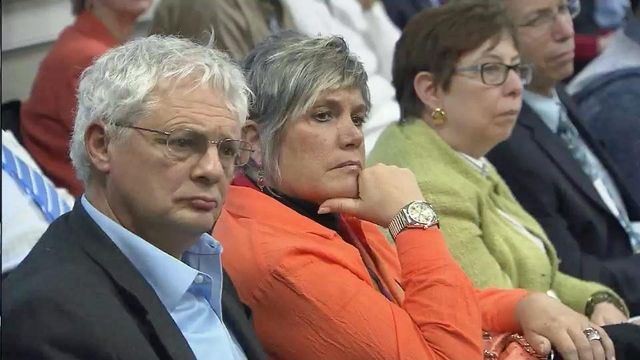Faculty leader: UNC owes apology to academic whistleblower
Professors at North Carolina's flagship public university are sitting down to hash out the unpleasant finding that parts of their campus schemed to give athletes fake grades so they could keep playing for the Tar Heels.
Posted — UpdatedFaculty leaders spoke candidly of their disappointment with the way that University of North Carolina at Chapel Hill handled a trickle of reports of impropriety that built to the flood of information released last week by former U.S. Justice Department official Kenneth Wainstein.
UNC should "formally apologize" to Mary Willingham, the researcher "who told the university for free what the Wainstein report documents in excruciating detail," said history professor Harry Watson.
"Had UNC embraced her leadership in 2012, the institution would have been spared years of humiliation and untold financial costs," Watson said.
His remarks were met with applause.
"Removing a bunch of scapegoats won’t solve the problem," said fellow history professor Jay Smith. "We have to solve the systemic problems."
W. Hodding Carter III, professor of leadership and public policy, spoke up for Smith, who has been outspoken about UNC's efforts to build a big-time football program on the backs of students who may not be able to handle a UNC course load.
During the meeting, faculty members offered ideas to regain Carolina's national academic reputation, including ending special admission standards for select student-athletes and limiting the time that students can spend in athletic pursuits.
They acknowledged that some changes would put the Tar Heels at a competitive disadvantage.
"There is something wrong with the faculty council, which is incapable of confronting administration," Carter said, noting that some on the council "ostracized" Smith while the scandal brewed.
It was the latest in a series of revelations of manipulation used behind the scenes to keep Tar Heel athletes academically eligible. Wainstein detailed how academic counselors steered student-athletes to classes in the former Department of African and Afro-American Studies that never met.
According to the report, former department Chairman Julius Nyang'oro and his department manager, Deborah Crowder, were responsible for offering hundreds of “irregular” classes that had no faculty involvement. Crowder managed the classes and assigned grades.
The fraud began in 1993 and lasted until 2011, the report said, and investigators found 169 student-athletes whose grades in such classes kept them eligible to play. Of the 169, 123 were football players, 15 were men's basketball players, eight were women's basketball players and 26 played in one of the Olympic sports.
"This is an issue of institutional integrity, a violation of the most basic assumption upon which the credibility of any college or university is based," wrote Brian Rosenberg.
The Southern Association of Colleges and Schools, which accredits UNC and put the university on notice when claims of academic impropriety surfaced, is again evaluating UNC's status, organization president Belle Wheelan told WRAL News.
Folt's immediate response to the Wainstein report was to dismiss or discipline nine employees.
UNC leaders did not identify those they found to be at fault, but WRAL News has identified two likely casualties. Beth Bridger, a former academic counselor for football at UNC-Chapel Hill, was fired from her position at UNC-Wilmington on the day the report was delivered.
Jan Boxill, a former chairwoman of the UNC-CH faculty council, whom the report said "made specific grade change suggestions for her women's basketball players," was no longer listed as director of UNC-Chapel Hill's Parr Center for Ethics on the group's website.
Although all the allegations are in the past, Wheelan said SACS would consider the Wainstein report as a new issue.
• Credits
Copyright 2024 by WRAL.com and the Associated Press. All rights reserved. This material may not be published, broadcast, rewritten or redistributed.





